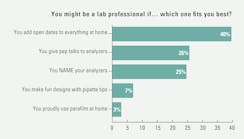According to recent research, electronic health records (EHRs) are having a significant effect on the capabilities of private physicians. The study, conducted by the Office of the National Coordinator for Health IT, was published in the American Journal of Managed Care. It is based on data from the 2011 National Ambulatory Medical Care Survey Electronic Medical Record Supplement.
While the share of physicians able to send electronic prescriptions had moved past the halfway point to 55% by 2011, there was still great variability among doctors on where and how electronic records are used. Larger practices were more likely to use e-prescriptions, for example, but practice size was less of an indicator for transfer of clinical summaries. Practices owned by health maintenance organizations or healthcare corporations were also more likely than independent practices to achieve higher standards of EHR usage.
Researchers, led by Vaishali Patel, PhD, found that great variation exists among vendors and in different parts of the country in exchange capability, especially for electronic exchange of clinical summaries. However, when doctors gain EHR capability, the study found, that increased their electronic capabilities. Among doctors with EHR, 87% could view lab results online, compared with 67% of all physicians; 73% could incorporate lab results into an EHR, compared with 42% of all physicians; and 54% could send an electronic order to a lab, compared with 35% of all physicians. Read the study.





